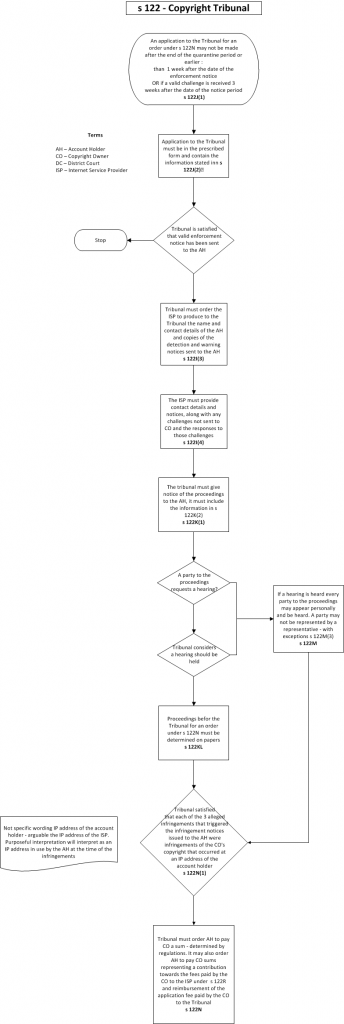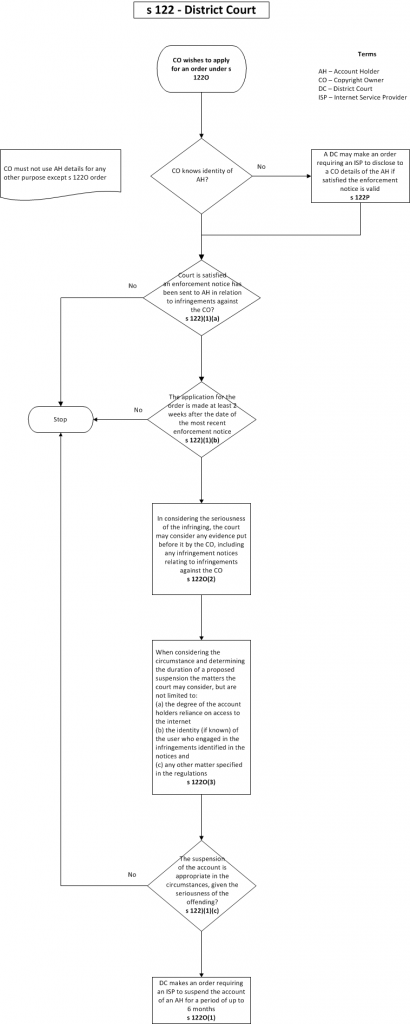Chris Esther has created some useful flowcharts that help explain some of the processes included in the new Copyright (Infringing File Sharing) Bill. He has very kindly allowed us to repost them here.
We have reformatted the flowcharts and made some other changes; we apologise for any introduced errors and will fix any that are reported.
Disclaimer from Chris: “It goes without saying that these are a Law student’s interpretation of the first bill and they don’t pretend to give a comprehensive view of the provisions – so viewer beware. However I hope they may be helpful.”
Click on each flowchart to view it full size.
The flowcharts
- Overview of section 122
- Handling alleged infringement
- Copyright Tribunal Procedure
- District Court procedure




Excellent work – Thanks Chris.
Nice simple explanations.
And it shows the big glaring deficiency hanging over this entire process. We see tribunals and courts there. We don’t see whether you’ll be presumed guilty and have to prove that your wifi wasn’t cracked. Or that some guy in Russia didn’t spoof your IP address to a BitTorrent swarm.
I feel safer already.
Thanks,sure i will be going through this process myself soon enough.All this suppression of our rights and still no concrete proof that anyone has lost a cent!smells of Fascism to me.
Great. The Copyright owner is the one who gets to decide whether the challenge against their claim is suitable.
This will not end well. Its bad enough its going to destroy the little public wifi this country has. All because a small dying industries can lay unsubstantiated claims to governments and get them to change law.
It’s still due process when it’s a rubber stamp for corporate interests over the rights of individual citizens, right?
I mean there’s even a small fee you have to pay, which will discourage individual creators (the ones we’re supposed to be protecting) from bringing claims while not at all harming the ability of big media companies to pursue and financially destroy non-commercial file-sharers.
And it’s all predicated on proving you didn’t get your wifi hacked or get spoofed by some guy in China.
What could go wrong here?
this is the same scam proposed last year. what has changed? This doesn’t help local artists at all, if anything the only people who benenfit from this are international record companies selling michael jackson and justin beiber “songs”.
what local artist can afford to pay a fee to the isp to start the ball rolling, let alone afford copyright tribunal court fees?
file sharing and youtube are the tape trading of this generation.